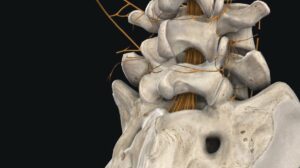NEW YORK (Reuters Health) – For cough suppression during flexible bronchoscopy, the combination of the sedative propofol and the opiate hydrocodone is safe and works better in terms of cough suppression than propofol alone, according to results of a randomized, double-blind, placebo-controlled study conducted at a tertiary care hospital in Switzerland.
In the absence of contraindications, this combination should be “adopted as a standard sedation regimen” for flexible bronchoscopy,” the study team recommends in the February 10 issue of the European Respiratory Journal Express.
Dr. Daiana Stolz and colleagues from University Hospital Basel enrolled in their study 300 patients undergoing flexible bronchoscopy. They allocated 154 to propofol alone and 146 to propofol plus hydrocodone.
Compared to the group that received propofol alone, the group that received the combination of propofol and hydrocodone had a significantly lower cough score (on visual analogue scale) as estimated by the physician (P = 0.011) and nursing staff (P = 0.031).
Two hours after the procedure, patients also reported less coughing and less discomfort with propofol and hydrocodone than propofol alone.
“Importantly,” Dr. Stolz wrote in an e-mail to Reuters Health, “patients receiving the combination of propofol and hydrocodone required markedly less propofol (200 mg) for providing the same operational conditions than those receiving propofol alone (280 mg), particularly in those procedures involving more complex examinations, such as bronchoalveolar lavage, transbronchial biopsy or transbronchial needle aspiration.” This could yield cost savings.
The addition of hydrocodone did not lead to an increase in peri-interventional complications. “Major complications (major bleeding, termination of the examination, intubation, need for intensive care unit, or death) were uncommon in both groups,” the investigators report.
Overall, the most common complications were oxygen saturation of 90% or less (32%) and need for chin support (31%). Rates of these complications did not differ significantly between the study groups. There were no significant between-group differences in duration of the procedure, time to discharge and complication rate.
“Due to increasing diagnostic and therapeutic potential of flexible bronchoscopy, improving patient safety and comfort is of paramount importance,” Dr. Stolz told Reuters Health. This randomized controlled trial shows that combining a pure sedative with an antitussive agent for sedation in flexible bronchoscopy is safe and yields an “additive benefit.”
Reference:
Propofol versus Propofol plus Hydrocodone for flexible bronchoscopy – a randomized study
Eur Respir J 2011. Published online February 10, 2011.




